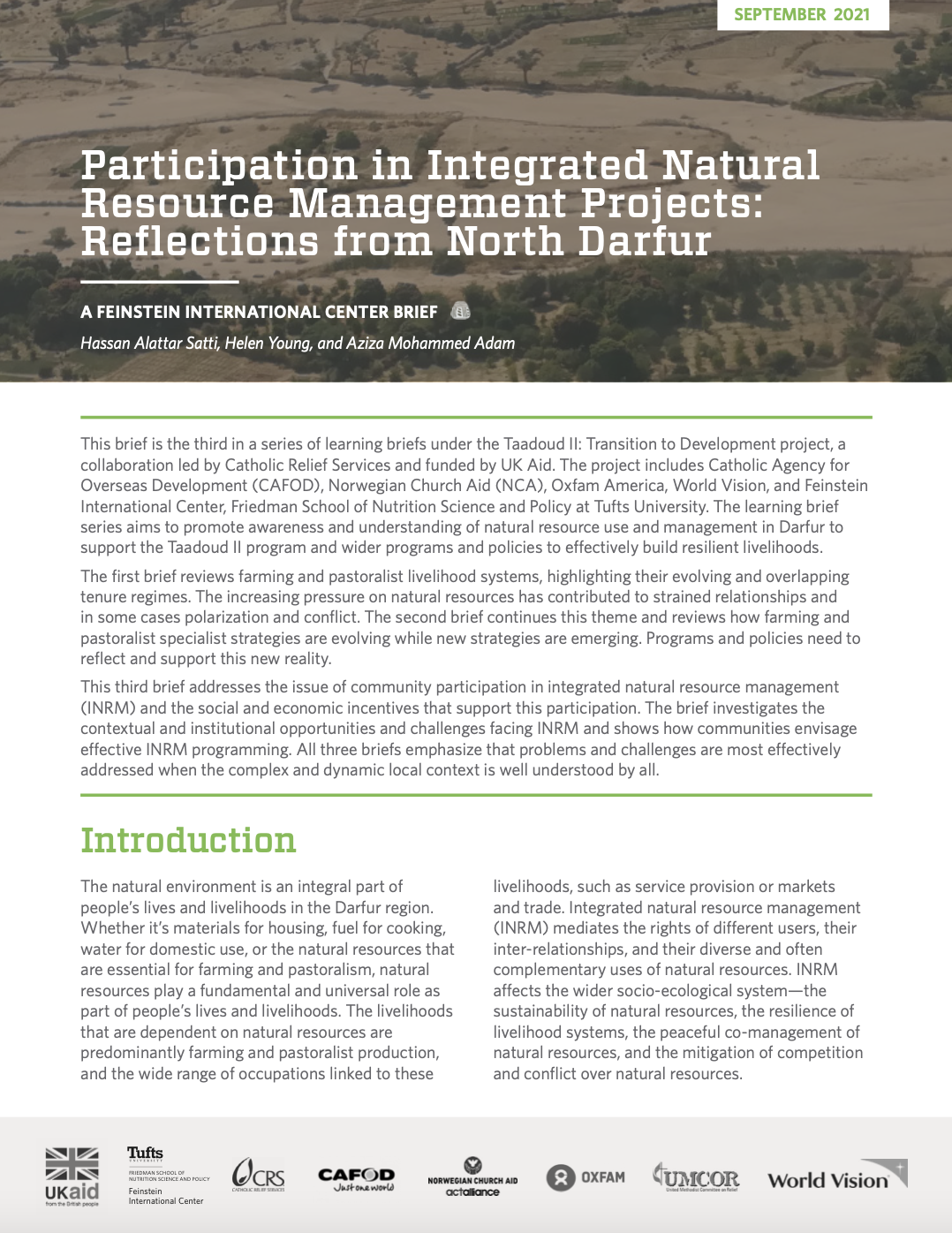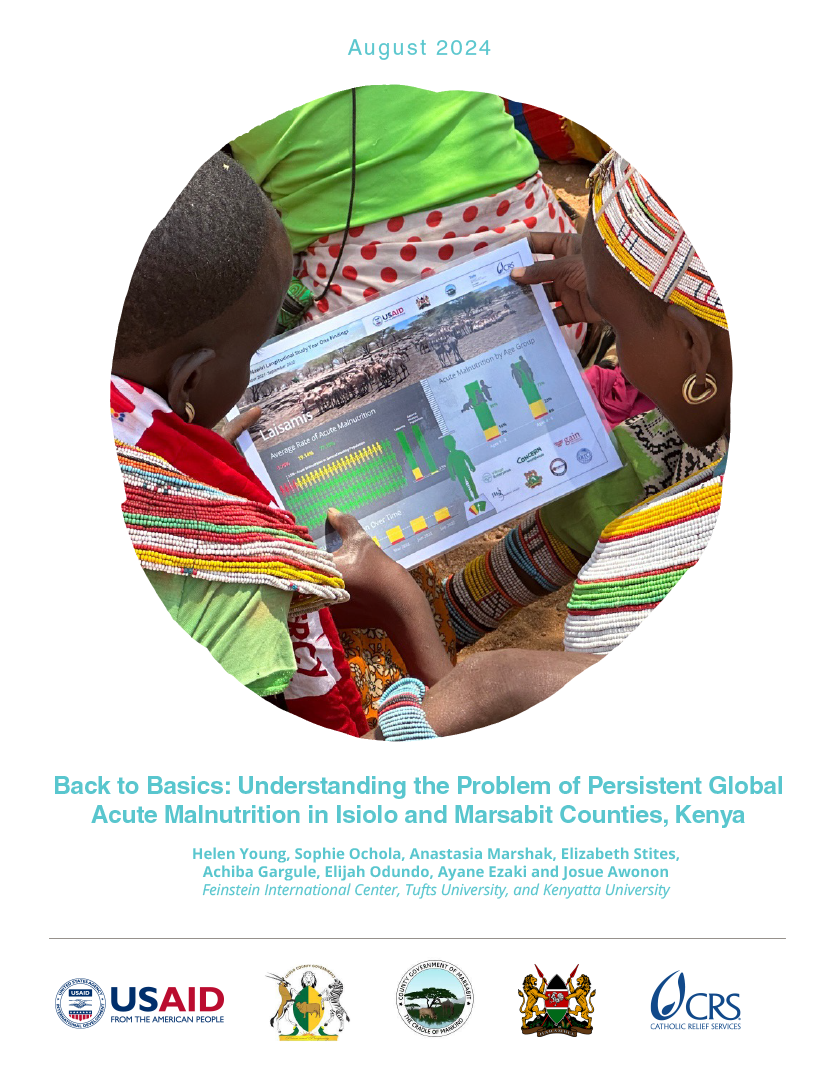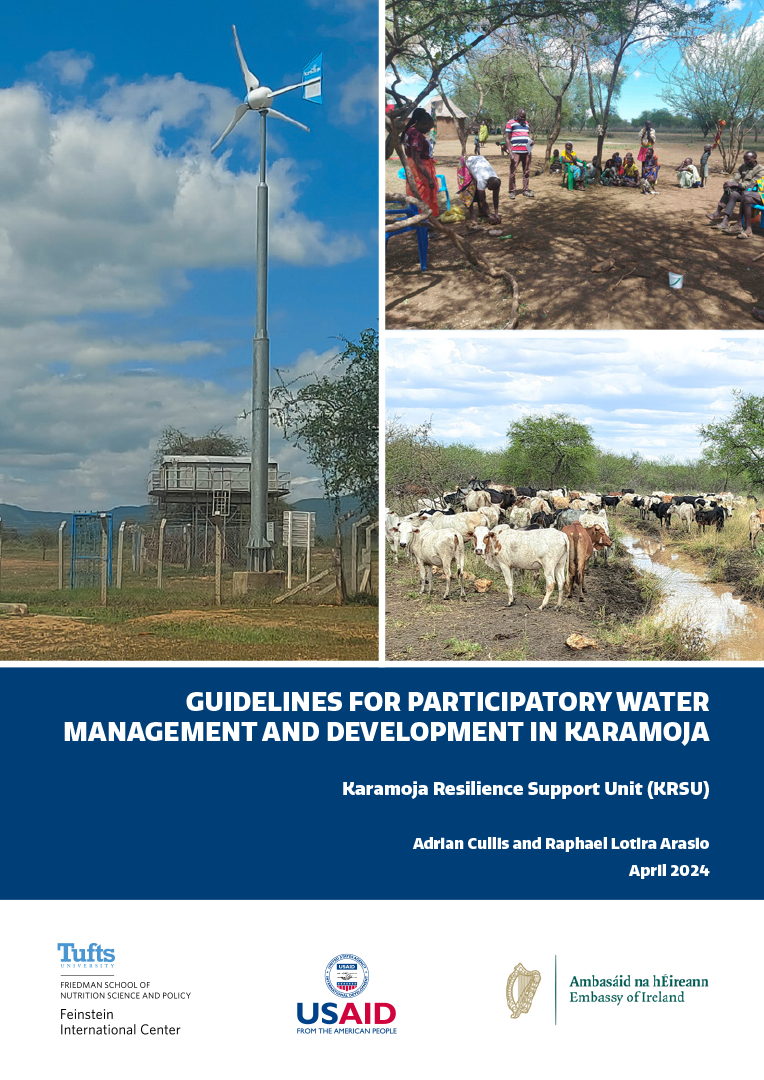The natural environment is an integral part of people’s lives and livelihoods in the Darfur region. Whether it’s materials for housing, fuel for cooking, water for domestic use, or the natural resources that are essential for farming and pastoralism, natural resources play a fundamental and universal role as part of people’s lives and livelihoods. The livelihoods that are dependent on natural resources are predominantly farming and pastoralist production, and the wide range of occupations linked to these livelihoods, such as service provision or markets and trade.
This brief explores community perspectives on integrated natural resource management (INRM) and aims to understand the incentives of natural resource users within Taadoud II areas to participate in INRM interventions. The brief considers what shapes those incentives and how communities perceive the way forward for realizing effective INRM approaches and who should be involved to achieve the objectives of “integrated” NRM.
This brief is the third in a series of learning briefs under the Taadoud II: Transition to Development project, a collaboration led by Catholic Relief Services and funded by UK Aid. The learning brief series aims to promote awareness and understanding of natural resource use and management in Darfur to support the Taadoud II program and wider programs and policies to effectively build resilient livelihoods.







